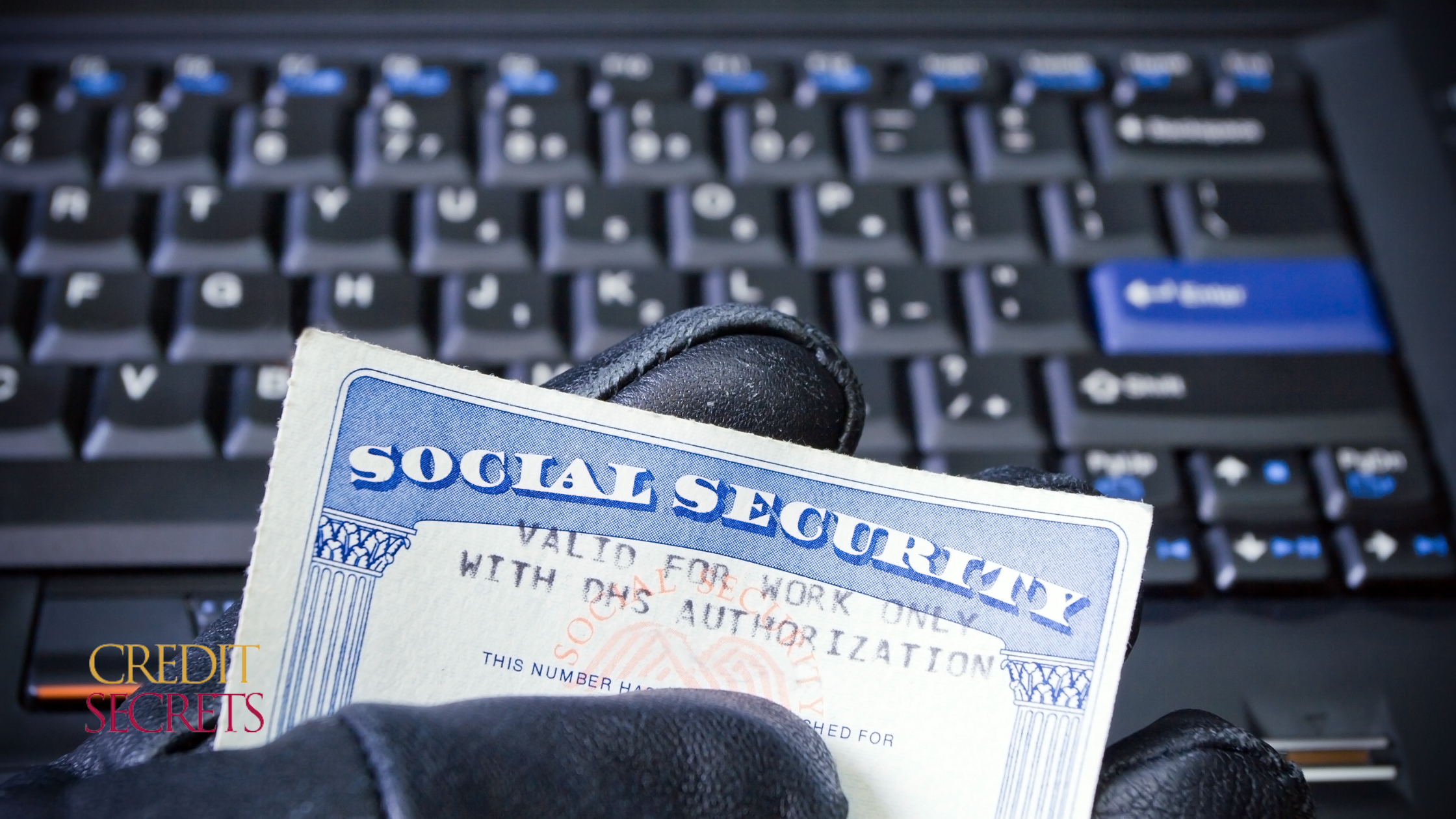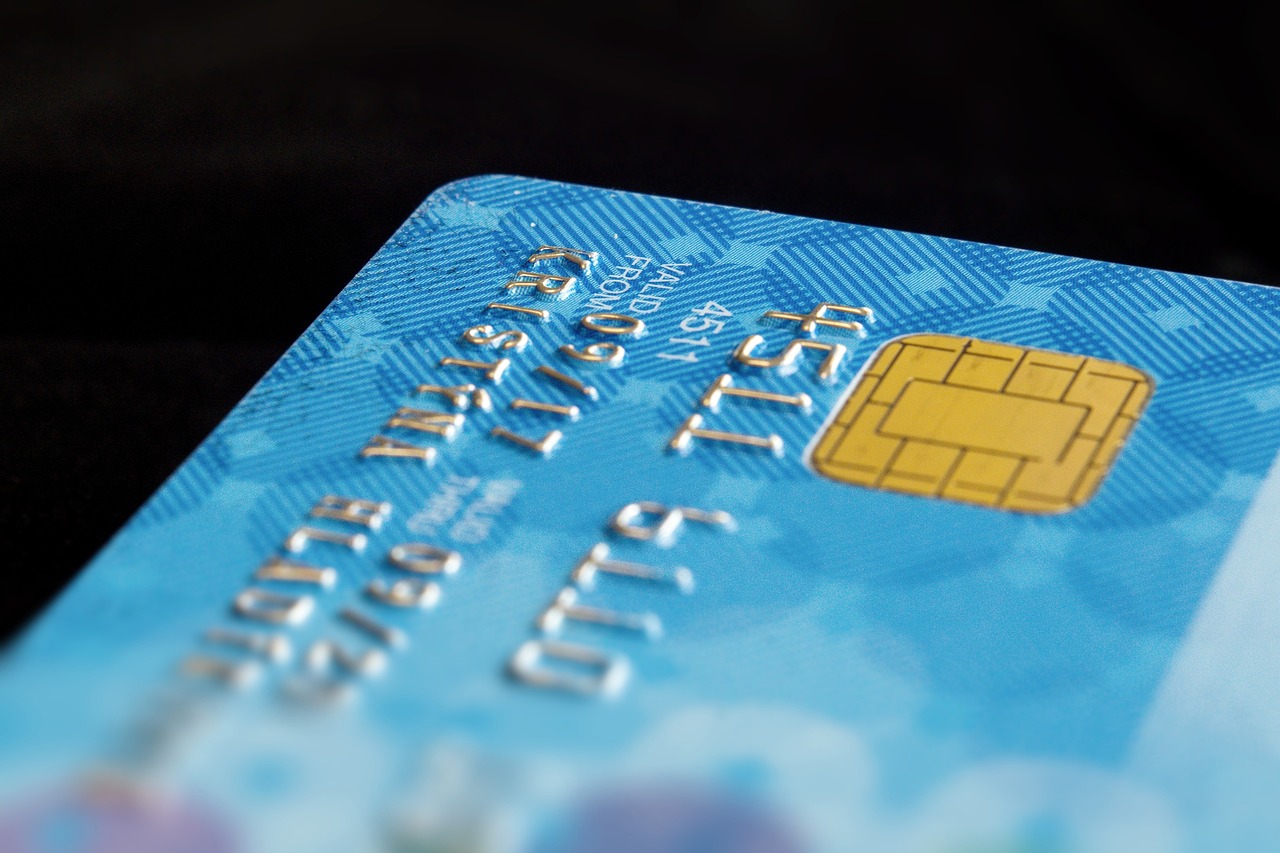This is How to Respond Identity Theft & Protect Your Assets

If your identity has been stolen, you’re probably in a panic. If so, right now, I want you to take a few deep, slow breaths. Just be here in this room right now, and get centered so you can pay attention…You can take control of the situation.
Here, I’m going to break down what you need to do, step-by-step.
This is what’s in store:
- What is the First Thing You Should Do if You Expect Identity Theft?
- 5 Crucial Steps to Deal With Identity Theft
- How to Protect Your Identity Long-Term
- Final Thoughts
Now, if you’re ready, let’s begin.
What is the First Thing You Should Do if You Expect Identity Theft?
The very first thing you need to do, if it looks like your identity may have been stolen, is make sure this is what’s actually happening.
The first thing you should do is confirm that your identity was actually stolen.
According to USA.gov, the top signs your identity was compromised are:
- You receive bills or invoices for items you didn’t purchase – this goes for physical mail and email.
- When you answer the phone, there’s a collection rep on the other line asking you to square up on a debt you didn’t open.
- A piece of expected mail goes missing or a recurring bill stops coming to you.
- Unexpectedly, you receive a denial for a loan or credit card.
- Your credit report shows accounts you didn’t open or completely incorrect identifiable information (superimposed numbers or misspelled street names aren’t usually a sign of this).
Now, just because something like this happens, it isn’t a guarantee that your identity was stolen. You could have been denied a loan for a valid reason. Or, a scammer could randomly call you with a demand for payment (I’ve seen this happen – one person I know paid over $3,000 to a scammer because he told her that she owed the IRS and was going to be reported).
So, now’s the time to verify that something is actually amiss.
If you received a bill or collection call from an account you don’t recognize, never share your identifying information. Instead, triple-check the web to see if the company is legit before you panic. Look for a website, reviews and feedback, verify that the business is registered in the state where they do business, and ask Reddit r/Scams or online scam databases.
If the sender or caller is scamming you, file a report with the FTC. If you received an email, you should report it as phishing. If you use Gmail, just open the message, click the three dots (More) next to Reply, then click Report phishing.
How to Report Phishing in Gmail – Watch Video

If your mail is missing from a certain financial account, reach out to the company to see if anything has changed on your account since your last received correspondence. If there’s been an address change or other modification you didn’t authorize, let the company know right away that you didn’t make this change.
It’s a good idea to pull your credit report from all three credit bureaus – You can do this once a year for free at annualcreditreport.com. After reviewing your reports, if you see an account that you did not open, it’s time to freeze your credit.
If things still seem awry, you’ll need to take action.
This is How to Freeze Your Credit
In the regrettable case that you can verify identity theft, freezing your credit is like putting a protective shield around your credit report to keep shady characters from opening new accounts in your name – It’s a savvy move to keep your identity safe.
Before 2018, the credit bureaus would charge between $3 to $12 for a credit freeze, but a new law passed – in favor of consumers – that makes it absolutely free.
Here’s how to freeze your credit:
- Start by grabbing your ID – you’ll need it for this.
- Hit up each of the three big credit bureaus – Equifax, Experian, and TransUnion. You can call them, visit their websites, or send them a letter to freeze your credit.
- Give them your personal info: Name, address, date of birth, last four digits of your Social Security Number, the usual. It’s just to make sure you’re you.
- Each bureau may give you a special PIN or password – your “freeze key.” Treat it with care and keep it in a place where you’ll remember but nobody else has access to.
- Repeat the process with each credit bureau.
Once you’re done, breathe a little easier. Your credit is now protected from more unauthorized use from identity thieves. From here, keep an eye on your bank and credit card statements.
Recommended: Credit Freeze Pros and Cons: Safeguard Your Financial Identity
4 Crucial Steps to Deal With Identity Theft
Once you’ve verified that your identity was stolen and frozen your credit with each bureau, there are some needed steps to prevent the damage from spreading. Here’s what you need to do to get your personal information locked down and your financial health back on track.
1. Address Each Compromised Account
You’ll want to check all of your legitimate financial accounts to see what’s been compromised and address the fraud with any new accounts that have been opened illegally.
Review all of your open financial accounts, including:
- Bank accounts
- Credit cards
- Personal and auto loans
- Mortgages
- Investment accounts
- Utilities and phone accounts
- Insurance (home, life, auto, etc.)
- Any other accounts that involve money
First, make a list of each account that may have been compromised and find contact information for each fraud department. You’ll need to work down the list, one-by-one. Save screenshots and print transaction histories for any accounts with red flags (you’ll need evidence later).
Next, reach out to the companies involved. Clearly explain that someone swiped your identity. Ask them to either close or freeze the affected accounts. This way, no new charges can be added without your approval. You’ll also want to dispute any unauthorized charges.
Be sure to keep record of any claim or incident numbers – you’ll probably need these later.
After that (if the companies don’t work with you to do so during the reporting process), quickly change logins, passwords, and PINs. Do this for all of your accounts.
You might need to contact these companies again once you have an FTC Identity Theft Report and/or police report to share.
2. Place a Fraud Alert With the Credit Bureaus
You can add an extra layer of protection to your accounts by placing a fraud alert with the credit bureaus. This is a free, one-year alert that will make it tougher for anyone to open new accounts in your name.
To alert the bureaus, you only need to contact one, Experian, Transunion, or Equifax, online or over the phone – Each bureau is required to share fraud alerts with the other two bureaus. However, you may contact all three if you like.
Get in touch with the credit bureaus here:
- Experian: Experian.com/help or 888-EXPERIAN (888-397-3742)
- TransUnion: TransUnion.com/credit-help or 888-909-8872
- Equifax: Equifax.com/personal/credit-report-services or 800-685-1111
You’ll receive a letter from each credit bureau confirming the placement of the fraud alert on your file – Its a good idea to keep these for your records. And, if you need to, you can renew the fraud alert after the year has passed.
3. File a Report with the FTC
It’s important to file a report with the FTC, to protect yourself and other consumers.
Luckily, they make it easy to make a report online or over the phone. Complete the online form at IdentityTheft.gov or call 1-877-438-4338. Be sure to provide as many details as possible.
If you report online, the website will generate your Identity Theft Report and a recovery plan based on the information you provide – Creating an account will guide you through each recovery step, update your plan, track progress, and fill out forms for you.
4. Report the Incident to Your Local Police
Now, you’ll want to head to your local police office armed with:
- A copy of your FTC Identity Theft Report.
- A government-issued ID with a photo.
- Proof of your address (mortgage statement, rental agreement, or utilities bill).
- Any proof you have of the theft (bills, IRS notices, etc.).
Most local law enforcement agencies allow you to file police reports online. However, online reporting is usually best for anonymous reporting, and you’re likely to get faster results by walking into the department or calling an officer to your residence to provide hard evidence.
Simply explain the situation, give the responding officer all of the evidence, and file a police report. When the report is filed, request a copy, as you will likely need to send proof of the report to your creditors. If you need to reach back out to any of your financial accounts with FTC or police reports, you can do so now.
Now, you can sit back and relax…for a bit, anyway. In ideal cases, any losses you suffered will be compensated. Most major lenders insure your funds and provide you with identity theft protection, even if only for your account with them.
If your institution will refund any losses, it can take some time, so be patient.
How to Protect Your Identity Long-Term
After you fall victim to identity theft, it can feel like you’re always waiting for the other shoe to drop – this kind of deceit can cause excessive stress for years to come. In my experience, the best way to combat this is to educate yourself and be proactive.
Here’s what you can do to protect your identity, finances, and assets into the future.
Monitor Your Credit
If you don’t already do this, it’s a good idea to monitor your credit. At the very least, you should request a copy of your credit reports once a year (instructions above).
Even better, you can monitor your credit with a free app like Credit Karma™, Experian™, or through one of your existing financial accounts. Even Transunion™ now offers free weekly reports. Just keep in mind that some of these apps are designed to encourage you to apply for more accounts – Use restraint and apply for loans or credit lines when you need them.
Now, new accounts and spending aren’t the only thing you need to watch for. Keep an eye on anything that’s out of place.
As an example, years ago, I noticed an address on my annual credit report that was in a state that I had never lived in. A couple of years prior, my purse had been stolen, along with my Social Security card (I know – you’re not supposed to carry those around with you). It turns out that someone was using my identity to work in Vallejo, California.
Luckily, all they did was gain employment (my guess is that the person was living in the U.S. unlawfully). In my case, I didn’t suffer any financial losses, but you can imagine how that could’ve gotten out of hand fast.
The point is that anything incorrect on your credit report should be disputed right away.
Recommended: How to Fix Your Credit After Identity Theft
Invest in Identity Theft Protection
If you’ve only got a few financial accounts, it’s pretty easy to find out about any identity theft protection that’s included with your products. For instance, most credit cards offer some form of safeguard and the Self Credit Builder™ program offers up to $1M in ID theft coverage to active members.
However, if you have a lot of accounts, it can take some time to navigate the terms and conditions to research your coverage. If your funds aren’t protected or you’re not sure, it can be helpful to purchase Identity Theft insurance, which costs around $10-30 per month in most cases, which is a pretty small investment for your peace of mind.
Some providers even offer concierge services, which means they will reach out to creditors and authorities on your behalf in the case of breaches of your information. I advise you to shop around and find the coverage that seems best for your situation.
And, consider discounts that may be available with any memberships you already have.
You might also like: Can IdentityIQ Really Protect Your Finances? The Truth
Protect Your Sensitive Information
Before the internet, identity theft did exist – it just wasn’t nearly as prominent as it is today. In
Here’s how to protect your sensitive information:
- Share minimal personal details on social media.
- Only share personal information when absolutely necessary.
- Set up and use a password manager for strong, unique passwords.
- Turn on two-factor authentication (2FA) wherever available for added account security.
- Set strong locks on your devices and keep your software updated.
- Avoid clicking on unknown links or downloading attachments.
- Only connect via secure WiFi networks.
- Consider using a virtual private network (VPN).
- Lock sensitive physical documents in a secure container or safe.
- Shred papers containing personal data before you dispose of them.
While many of these tips are technology related, some of the tried and true methods still work. Stay vigilant.
Educate Yourself on Phishing
Phishing is a deceptive online tactic where scammers pose as trusted entities to trick you into sharing sensitive information. They often use fake emails or messages that appear urgent, hoping you’ll click on links or provide personal details.
Once they have what they need, they can use it for unauthorized activities. To avoid falling for phishing attempts, be cautious, double-check the legitimacy of emails, and refrain from sharing sensitive info unless you’re certain it’s legit.
I get fake invoices and electronic signature requests to my public work email address weekly. So far, I haven’t fallen for it, but sometimes, they can look pretty convincing.
Final Thoughts
Facing identity theft can be overwhelming, but taking control of the situation is crucial. The initial steps involve confirming if your identity is indeed compromised, checking for common signs, and verifying the legitimacy of any suspicious activity.
Freezing your credit is a smart move to shield your credit report from further unauthorized use. Address each compromised account, place a fraud alert with credit bureaus, and file a report with the FTC and local police to safeguard yourself (and others). To protect your identity long-term, monitor your credit, invest in identity theft protection, proactively safeguard sensitive information, and educate yourself on phishing tactics.
Scammers constantly evolve their methods. By staying vigilant and proactive, you can reduce the risk of identity theft and secure your financial well-being. Remember, knowledge and awareness are your strongest allies in this ongoing battle against digital deceit.
Has ID theft impacted your credit? To get your score up fast so you can move forward with your life, check out Credit Secrets and start your journey to better financial health.







